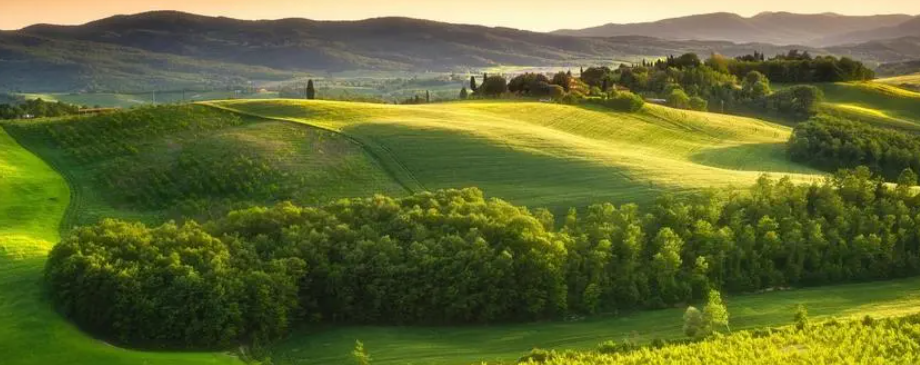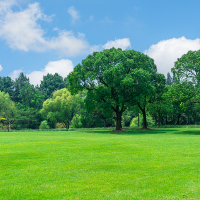
Nature is valuable not only for itself; it is also to be revered as the single most persuasive and redemptive work of philosophy.
大自然不仅对其自身是价值连城的,亦被尊奉为哲学中最为言之有理与最具救赎意义的作品。
Nature corrects our erroneous- and ultimately very painful -sense that we are essentially free.The idea that we have the freedom to fashion our own destinies as we please has become central to our contemporary world-view: we are encouraged to imagine that we can, with time, create exactly the lives we desire, around our relationships, our work and our existence more generally.This hopeful scenario has been the source of extraordinary, unnecessary suffering.
大自然纠正了我们大错特错的,且最终亦是痛不欲生的感觉,即我们本质上是自由自在的。我们可以随心所欲地自由塑造自己的命运,这一想法已经成为我们当代世界观的核心:我们被鼓励着去冥思遐想,久而久之,我们可以在我们的人际关系、工作和更广泛的存在中,缔造出我们梦寐以求的生活。这种满怀希望的情景向来是非同寻常的、多此一举的痛苦之根源。
There are many things we want desperately to avoid, which we will spend huge parts of our lives worrying about and which we will then bitterly resent when they force themselves upon us nevertheless.
有诸多事情是我们拼了命想要退避三舍的,我们会花费人生中的大部分时间来为之忐忑不安,然而,当它们强加于我们之时,我们又会怨恨不已。
The idea of inevitability is central to the natural world: the deciduous tree has to shed it leaves when the temperature dips in autumn; the river must erode its banks, the cold front will deposit its rain: the tide has to rise and fall. The laws of nature are governed by forces nobody chose, no one can resist and which brook no exception.
必然性的概念乃自然界的核心:秋日气温下降时,落叶乔木便不得不落叶纷纷;河水必定会侵蚀河岸,冷锋袭来,秋雨绵绵;潮水有涨有落。自然规律由一种无人能进行抉择的力量所统驭,无人能与之负隅顽抗,亦无一例外。
When we contemplate nature (a forest in the autumn for example, or the reproductive cycle of a salmon), we're witnessing rules that in their broad irresistible structure apply to ourselves as well.We too must mature, seek to reproduce, age, fall ill and die. We face a litany of other burdens too:we will never be fully understood by others; we'll always be burdened by primordial anxiety;we'll never fully know what it is like to be someone else: we will invariably fantasise about more than we can ever have: we'll realise we cannot -in key ways-be who we want to be.
当我们对大自然(譬如,秋日的森林,或者鲑鱼的繁殖周期)若有所思时,我们亲眼目睹到的规则,在其广袤无垠而不可遏制的结构中,亦适用于我们自身。我们也得长大成人,寻求繁衍、衰老、生老病死。我们还面临着一连串的其他负担:我们永远不会被他人洞若观火;我们总是为原始的焦虑所负累;我们永远不会全然知晓成为别人是何种感觉;我们幻想很丰满,得到的却很骨感。我们会意识到我们无法——在某些关键的方面——成为我们想成为之人。
What we most fear will happen irrespective of our wishes. But when we see this frustration as a law of nature, we drain it of some of its sting and bitterness. We recognise that limitations are not in any way unique to us. In awesome, majestic scenes (the life cycle of an elephant; the eruption of volcano). nature moves us away from our habitual tendency to personalise and rail against our suffering.
无论我们愿望如何,最令我们忧心忡忡的事情总会突如其来。然而,当我们把这种挫折感视为一种自然规律时,我们便会将其些许的刺痛与苦涩一并消弭。我们豁然开朗,局限性并非我们所独有的。在令人敬畏的庄严场景中(大象的生命周期;火山爆发),大自然让我们从个性化和怨声载道的习惯性倾向中挣脱了出来。
A central task of culture should be to remind us that the laws of nature apply to us as well as to trees, clouds and cliff faces. Our goal is to get clearer about where our own fantalisingly powerful yet always limited agency stops -and where we will be left with no option but to bow to forces infinitely greater than our own.
文化的一项核心任务应该是提醒我们,自然规律不仅适用于树木、云彩和悬崖峭壁,亦适用于我们。我们的目标旨在弄清楚我们自身强大但总是有限的能力止步于何处,且我们将别无选择,从而,只能向着比我们自身强大得多的力量垂首帖耳。
